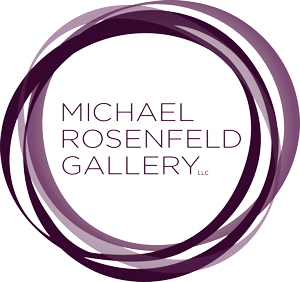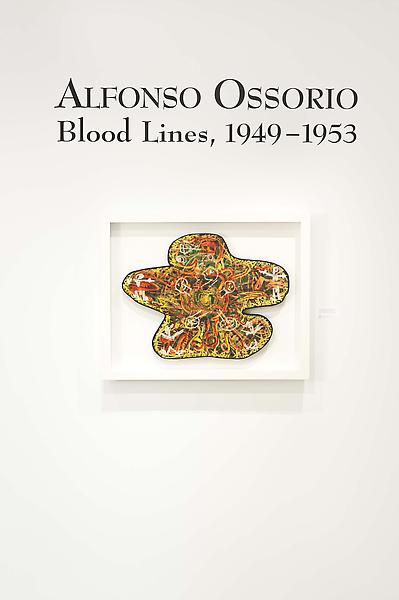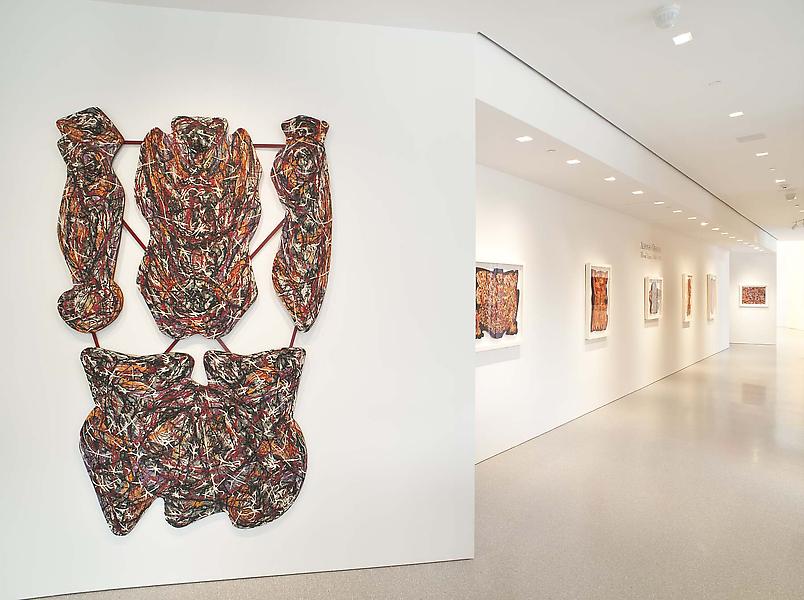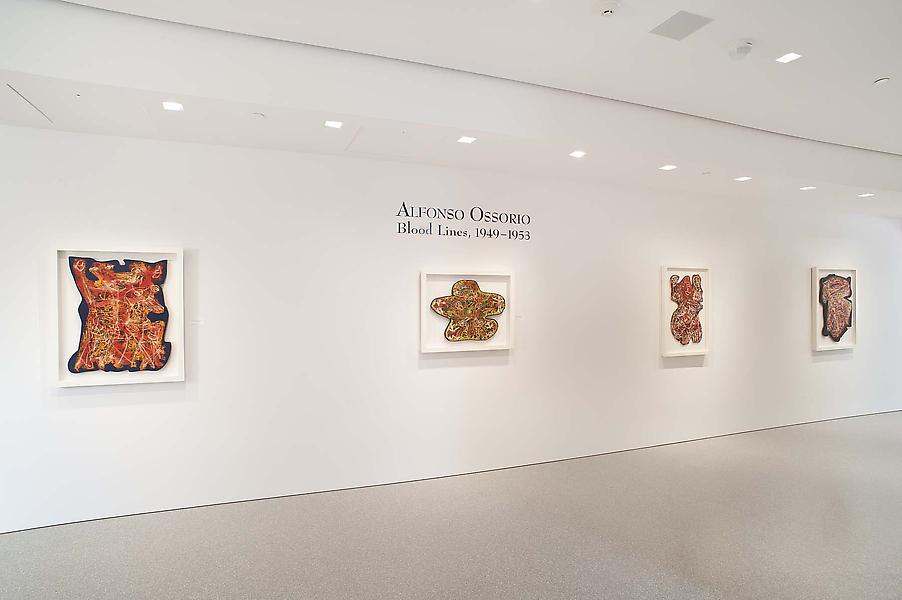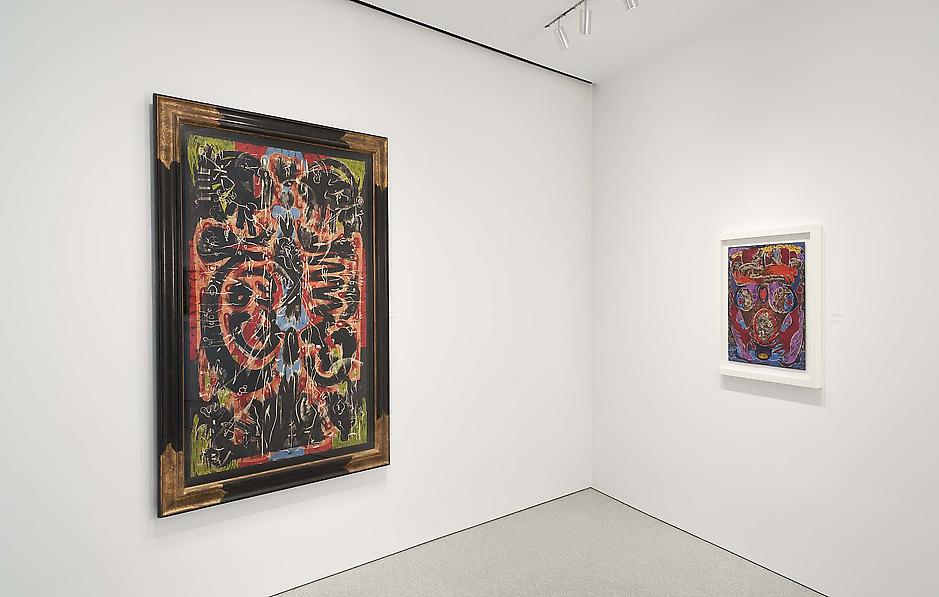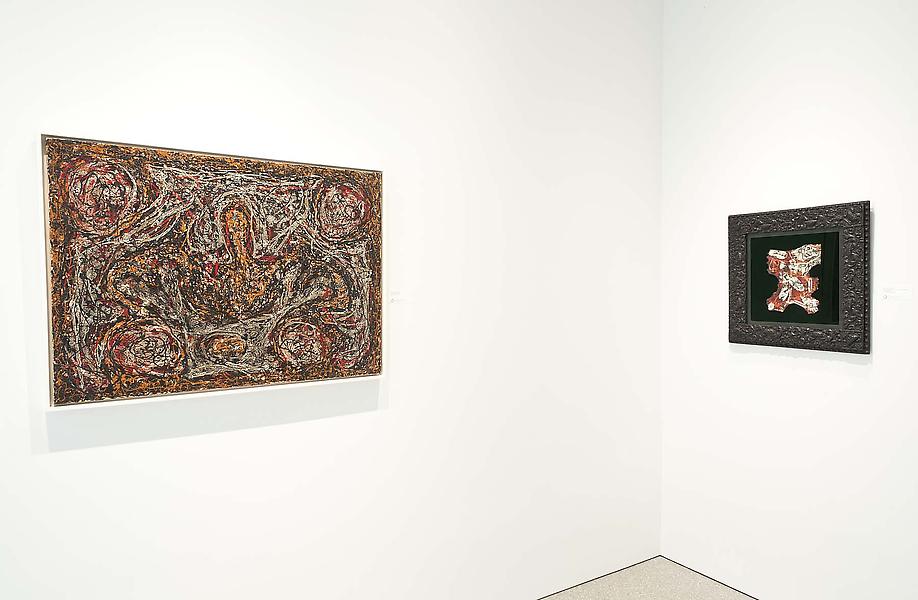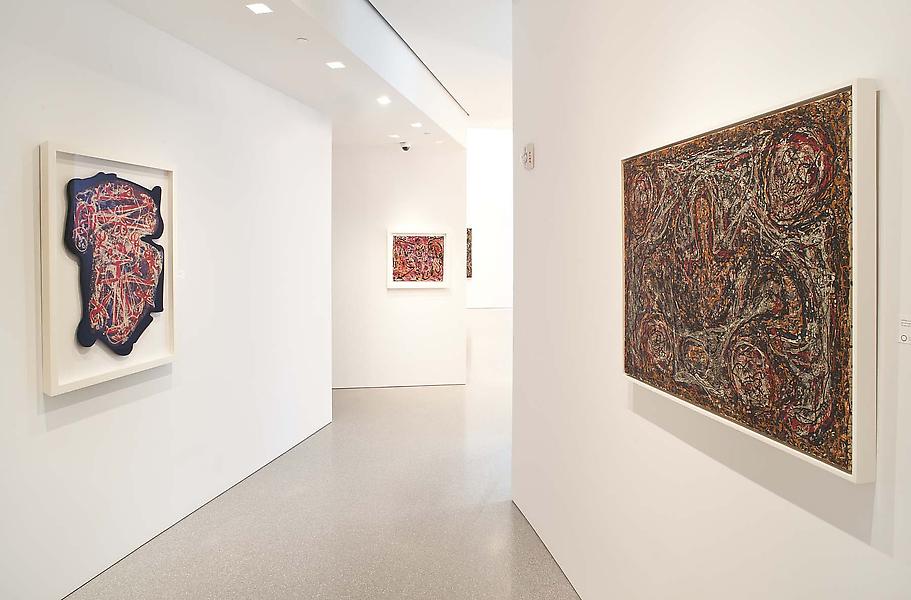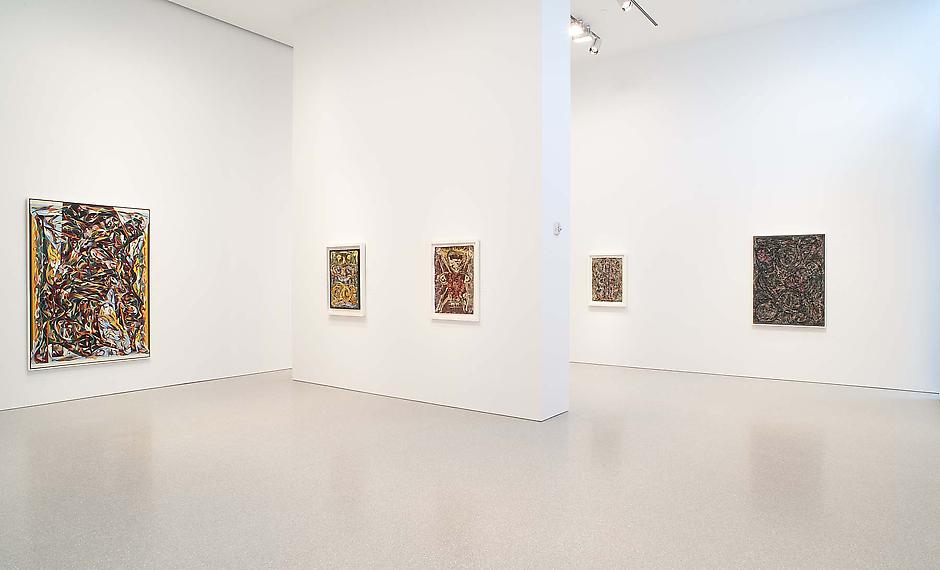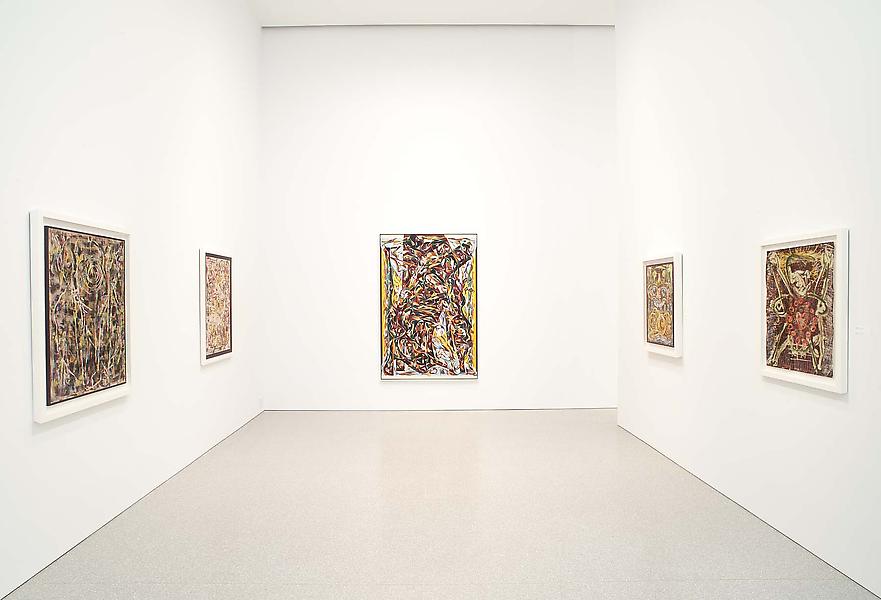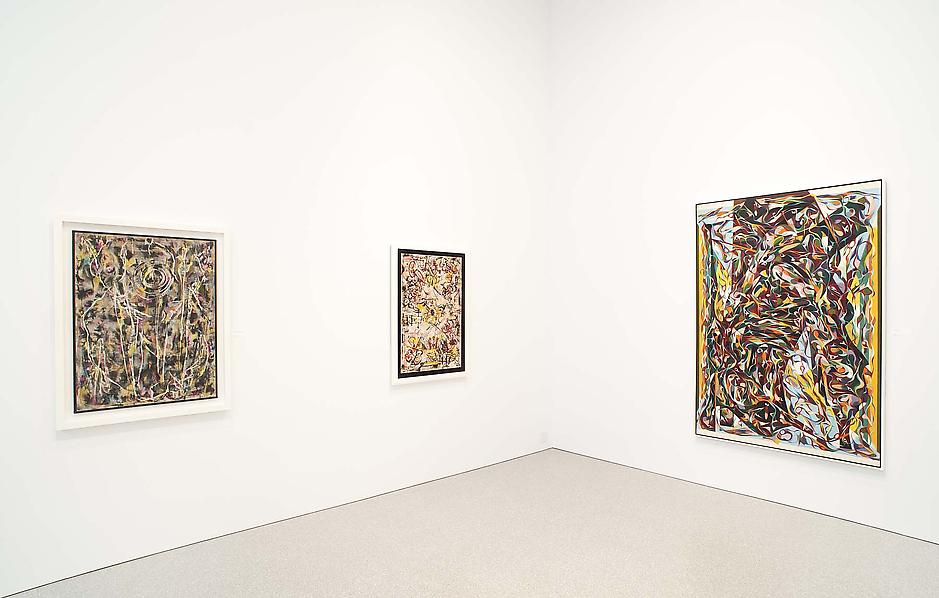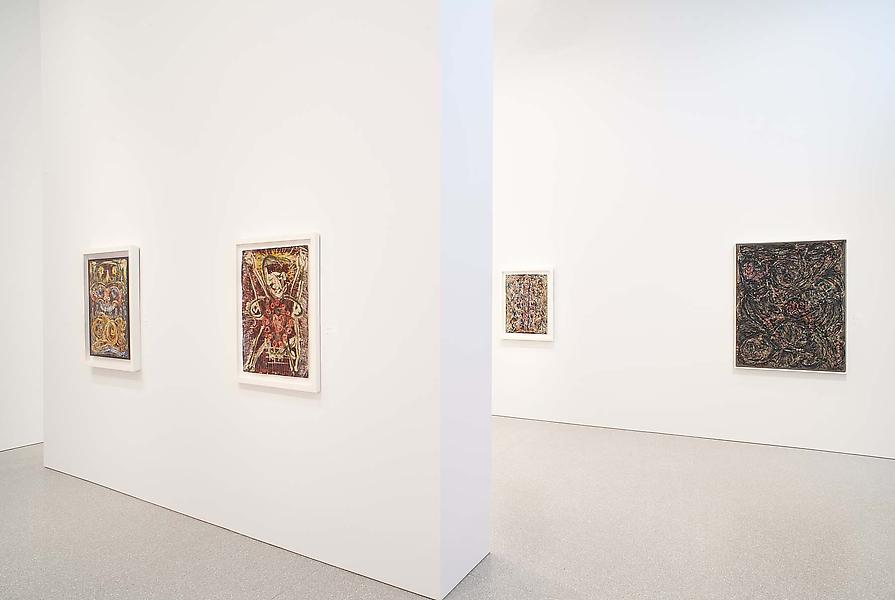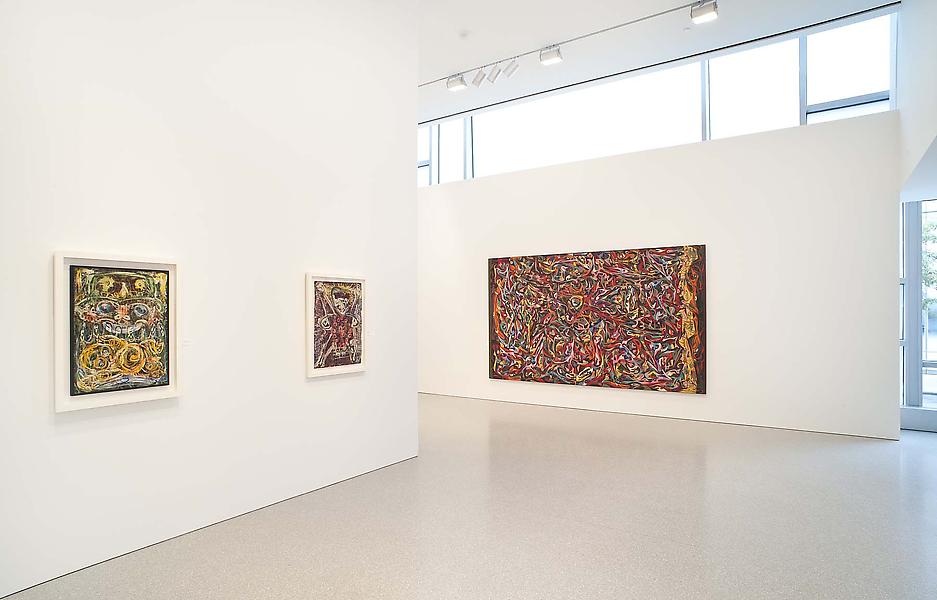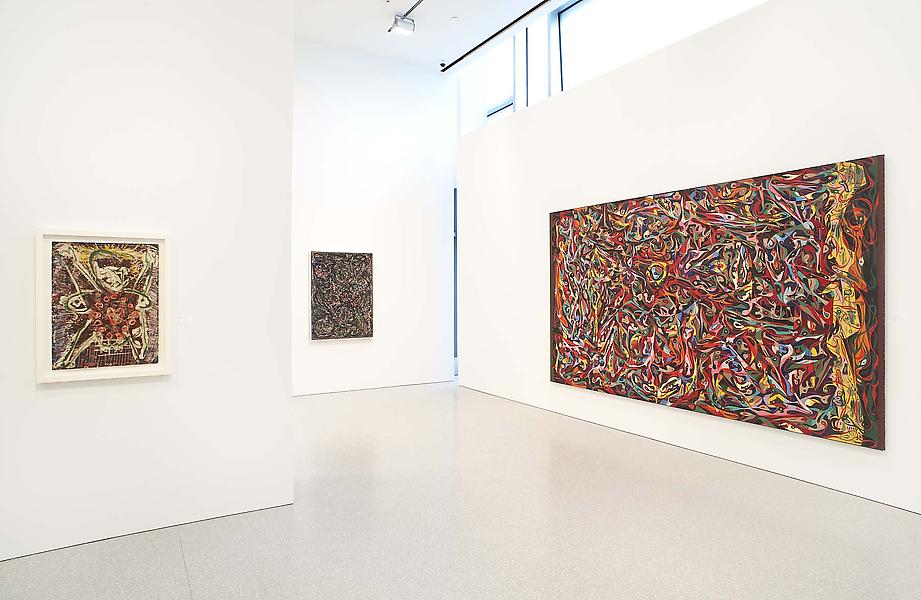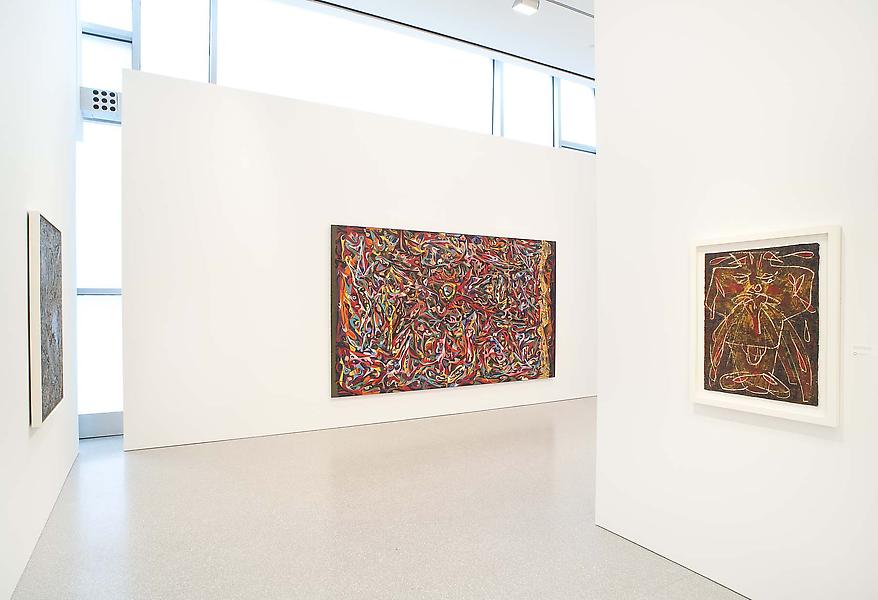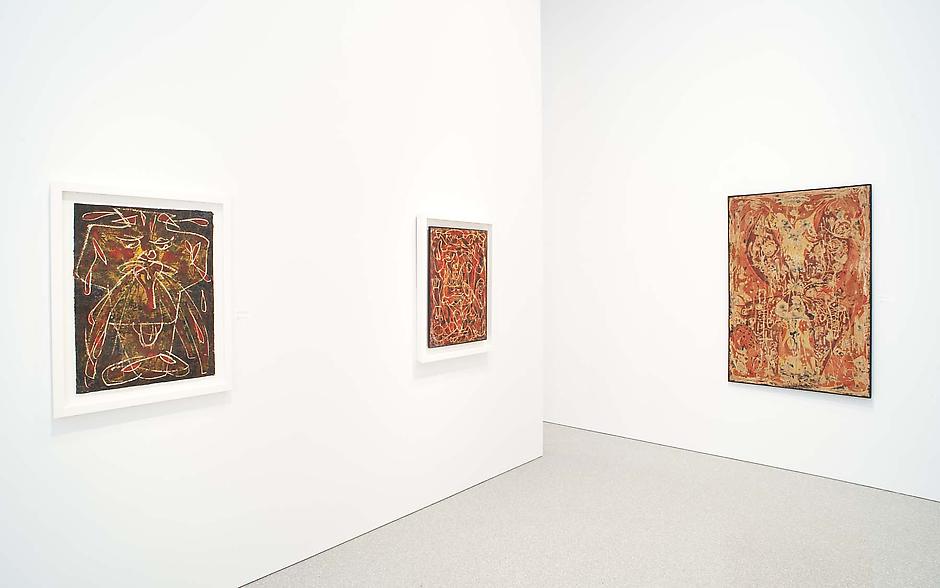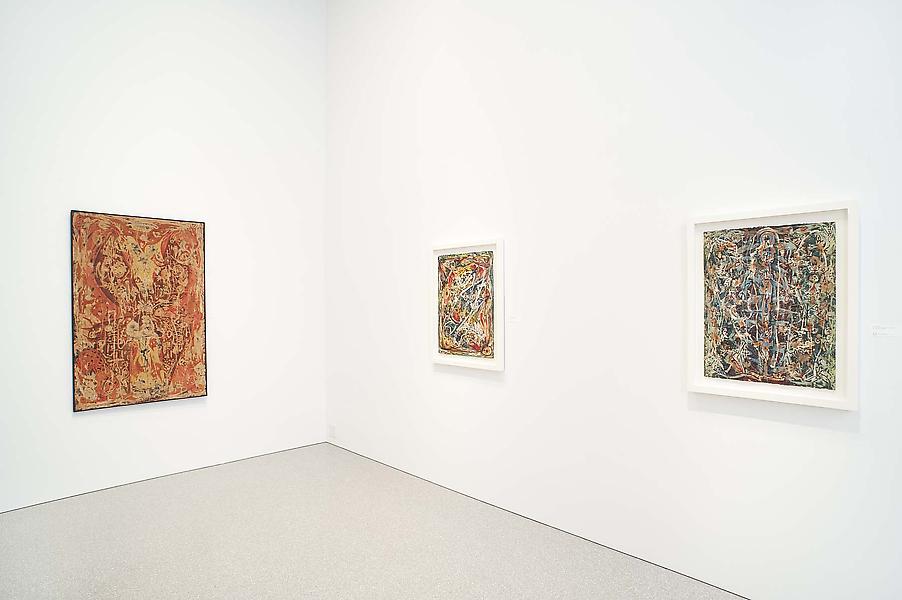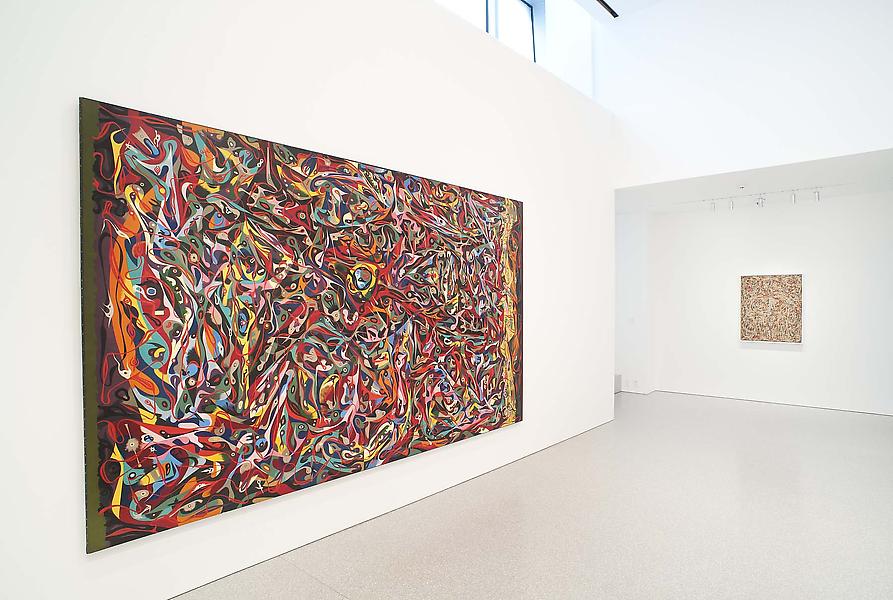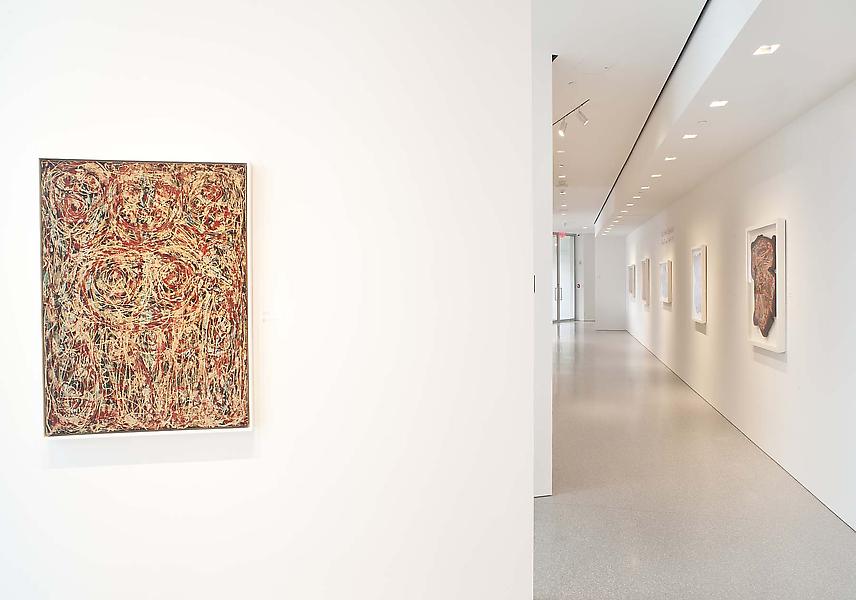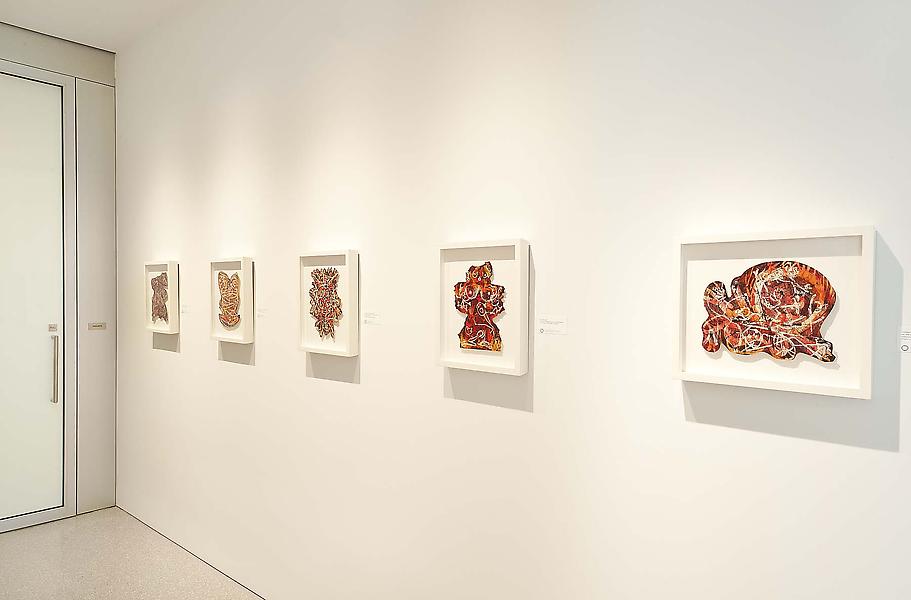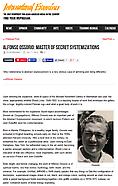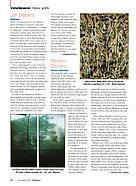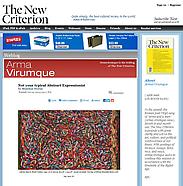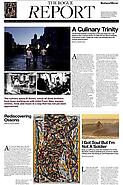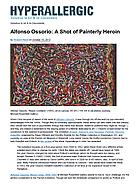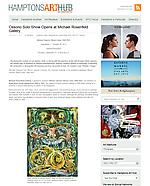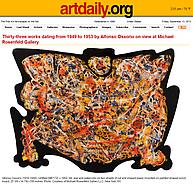“By fusing the content of conception, birth, or being with the assertion of the self through artistic gesture, the energy sign of existence in abstract expressionism, Alfonso created a sphere of meanings. Examining the existential in all possible dimensions and from all points of view, he created a new "holistic" image.” (1)
(New York—September 5, 2013) Michael Rosenfeld Gallery is pleased to present Alfonso Ossorio: Blood Lines, 1949-1953, an exhibition of thirty-three works dating from 1949 to 1953, the majority of which Ossorio created in 1950 while working on a mural for a church dedicated by his family in the Philippines. Striking for their hot, vivid, deep colors, pierced and jagged forms, and pulsating energy, these wax-resist paintings on paper, done at the height of abstract expressionism’s ascendancy, captivated Jackson Pollock and Lee Krasner and inspired Jean Dubuffet to write his only monographic study on Ossorio. Although the paintings circulated among artists and held a special place in Ossorio’s body of work, they remained largely under-exhibited until after the artist’s death in 1990.
This exhibition is the tenth that the gallery has dedicated exclusively to Ossorio’s work over the past twenty-five years, and Michael Rosenfeld Gallery has worked extensively with the artist’s family in order to mount such a comprehensive exhibition of the “Victorias Drawings” and related work. Alfonso Ossorio: Blood Lines, 1949-1953 coincides with Angels, Demons, and Savages: Pollock, Ossorio, Dubuffet (organized by the Phillips Collection, Washington, DC and the Parrish Art Museum, Watermill, New York, where it is currently on view), to which the gallery is a proud lender. Alfonso Ossorio: Blood Lines, 1949-1953 is accompanied by a color catalogue containing essays by Michael Solomon and Kent Minturn, as well as a never-before-published translation of the original appendix for Peintures initiatiques d’Alfonso Ossorio (The Initiatory Paintings of Alfonso Ossorio), Dubuffet’s 1951 monograph.
A close friend and supporter of abstract expressionist artists, Alfonso Ossorio was born in Manila, the Philippines and educated in Catholic boarding schools before coming to the United States in 1930. In 1933, he became a U.S. citizen and a year later, matriculated at Harvard University. He received his BA in 1938, after successful completion of a senior thesis titled Spiritual Influences on the Visual Image of Christ. In the late 1940s, he began to explore abstraction, forming vital friendships with Jackson Pollock and Jean Dubuffet, who showed Ossorio the value of reaching inward for inspiration rather than starting with an object or world external to himself. His growing interest in abstraction coincided with his reading Nandor Fodor’s The Search for the Beloved—A Clinical Investigation of the Trauma of Birth and Pre-Natal Conditioning, which saw human gestation and birth as traumatic, violent processes.
In 1950, Ossorio traveled to Victorias, Negros, to work on a mural for the Church of Saint Joseph the Worker, which his family had built. The trip signaled his first time in the Philippines since he was ten years old. The return “home” opened old wounds from Ossorio’s youth, including conflict about his sexuality and the effects of his devoutly Catholic upbringing. While in Victorias, as a way to address these feelings and as a form of liberation from the stylistic restrictions of the mural project, he produced a stunning set of paintings collectively known as the Victorias Drawings, all centered on themes of childhood, birth, sexuality, mythology, and religion. Ossorio used a wax-resist technique that he developed after seeing it used in the work of Romanian surrealist Victor Brauner. After applying a light color wash to the paper, Ossorio
